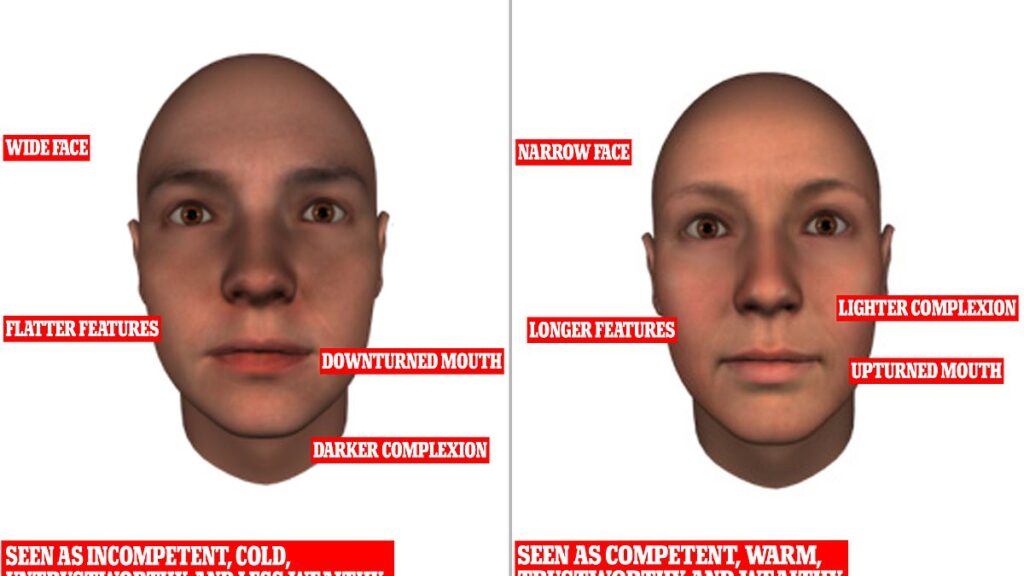- Preconception research shows that wealthy people have narrow and friendly faces
- In contrast, poor people appear gloomy and incompetent, researchers say
Have you ever looked in the mirror and noticed what kind of messages you are sending out to those around you without even realizing it?
Your face shape can influence people's perception of your wealth, according to new research.
Preconception research shows that wealthy people have narrow and friendly faces.
In contrast, researchers at the University of Glasgow say poor people appear gloomy and incompetent.
In the study, scientists analyzed the instantaneous judgments people make about each other and found that faces perceived as “rich” were also considered more trustworthy.
They have smiling mouths, chiseled features, raised eyebrows, closely spaced eyes, and rosy cheeks, characteristics that also make them seem trustworthy, warm, and capable.
On the other hand, faces that are considered “poor” have lowered eyebrows, a shorter chin, a lowered mouth, and darker, colder skin, making them appear untrustworthy, cold, and incompetent.
This study focused on what makes a person appear to be of a higher or lower social class and how those characteristics are related to perceptions of that person's personality.
The study's lead author, Dr Thora Bjornsdottir, said making hasty judgments based solely on appearance could have long-term effects on individuals.
She says, “People who are perceived to be of high or low social class are also often judged to have advantageous or disadvantageous characteristics, respectively.
“Such judgments, formed even based on facial appearance alone, can have serious consequences, including disadvantaging those perceived to be of lower social class.”
“Stereotypes that we hold bias our perceptions.
“Our impressions of others can lead to certain advantages or disadvantages for that person.”
The researchers found that faces considered unsightly were more “infantile” and had the stubby, round features of a child.
These traits may be related to reduced physical strength, low intelligence, or a submissive personality.
“Wealthy” faces, on the other hand, were longer and more defined, with prominent noses, upturned mouths, and high foreheads.
These traits made them appear more dominant, competent, and sincere.
Professor Rachel Jack said: “Our study shows how certain facial attributes play an important role in linking perceptions of social class with associated stereotypes.”
“These findings are not only valuable in advancing our understanding of core social cognitive theories, but may also inform future interventions aimed at interrupting biased perceptions.”

